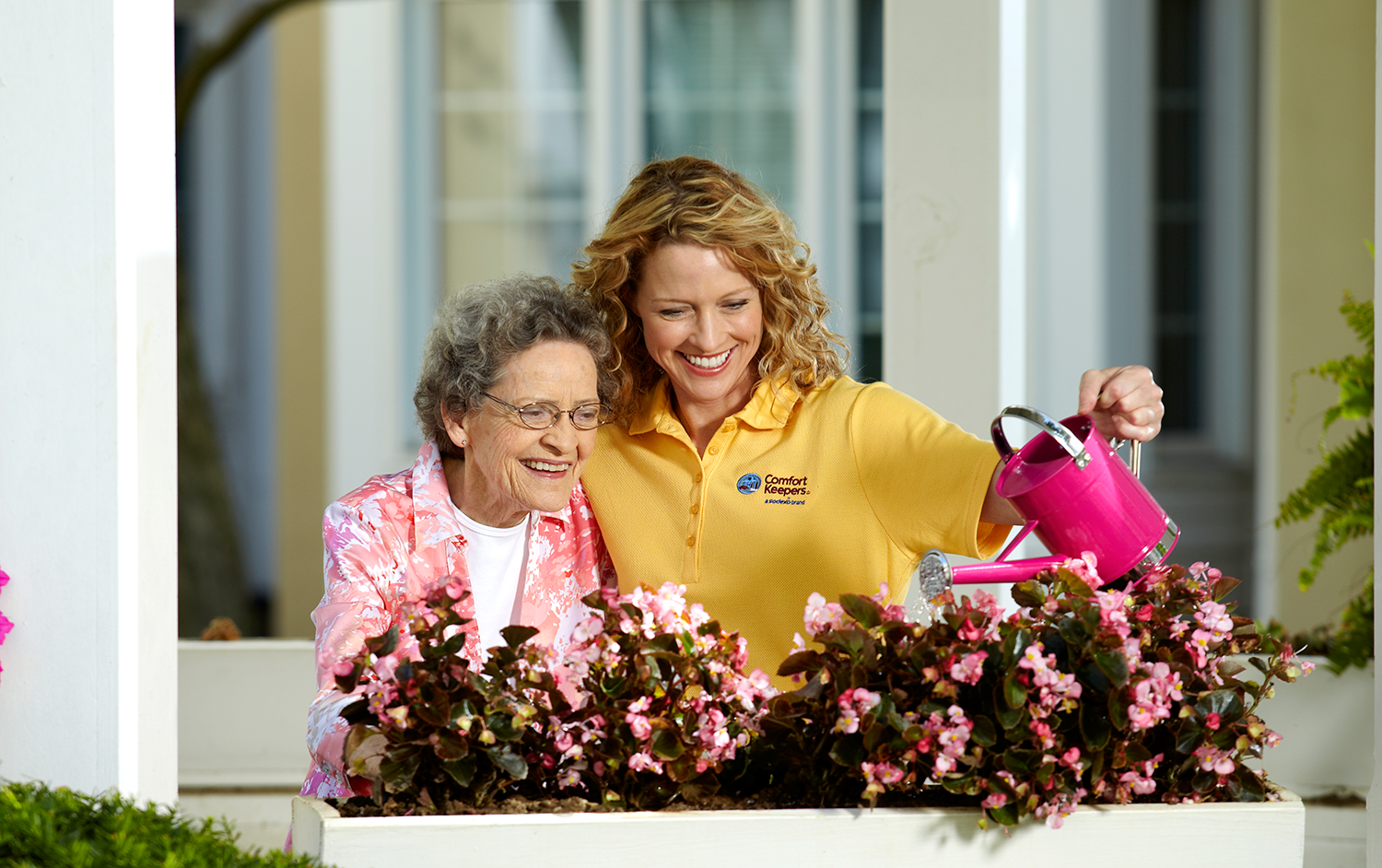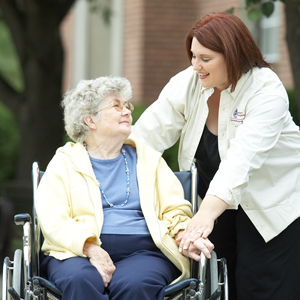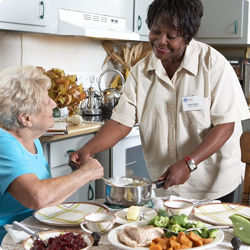Colorectal Cancer: Screening and Risk Reduction for Seniors
Blog | April 5, 2017
Understanding Colorectal Cancer
Colorectal cancer – also referred to as colon cancer or rectal cancer – is considered the second-leading cause of cancer-related deaths, for both men and women. The percentage of deaths from colorectal cancer tends to be highest for those within the 75-84 age range.
Colorectal cancer typically begins with the formation of polyps, which are clumps of cells in the inner lining of the colon and/or rectum. The cancer formed from these polyps can spread through the mucosa (innermost layer of the colon), to the lymph nodes, allowing it to spread to the liver, lungs, and other organs in the body. Types of colorectal cancer include:
- Adenocarcinomas – Nearly 95% of colorectal cancers fall under this classification. As described above, adenocarcinomas form as a polyp or series of polyps found in the mucus-secreting glands in the colon or rectum.
- Gastrointestinal carcinoid tumors – These slow-growing tumors form within the gastrointestinal (GI) tract from a specific type of neuroendocrine cell. Gastrointestinal carcinoid tumors are considered to be rare, making up approximately 1% of colorectal cancers.
- Lymphomas – Even rarer than gastrointestinal carcinoid tumors, lymphomas generally develop in the lymph nodes.
Certain factors, both controllable and uncontrollable, can increase one’s overall risk of developing colorectal cancer. Those who are both overweight and physically inactive are generally at a higher risk, as are those whose diets include a high volume of red and processed meats. Family history (particularly of either colorectal cancer or adenomatous polyps), having an inherited syndrome (such as Familial Adenomatous Polyposis and Lynch Syndrome), and having type 2 diabetes all represent uncontrollable factors.
Another factor beyond one’s control is advanced age. The older one is past the age of 50, the higher his or her risk. In fact, studies show that nearly 60% of colorectal cancer patients are 70 years of age or older. Fortunately, colorectal cancer is one of two cancers that can be detected with screening.
Colorectal Cancer Screening
While the American Cancer Society recommends that screening starts at age 50 to help detect colorectal cancer early on, screening can aid in detecting cancer (or risk factors for development) in seniors as well. Although there are several screening options available, seniors should choose tests that are germane to personal preference and medical history – with consultation from a doctor or physician. Recommended screening methods include:
- Fecal Occult Blood Test (FOBT)/Fecal Immunochemical Test (FIT): These tests check for trace amounts of blood from polyps. Studies indicate that FOBT, in particular, can help reduce colorectal cancer-related deaths by up to 33%, when performed by those in the 50-80 age range, every 1 to 2 years.
- Stool DNA Test (FIT-DNA): Similar to the tests above, the FIT-DNA test looks for trace amounts of blood as well as DNA biomarkers in genes associated with colorectal cancer and adenomas. While there are numerous advantages to the FOBT, FIT, and FIT-DNA, all three can produce false-positive test results, indicating that an abnormality exists when in fact it does not.
- Colonoscopy: A flexible, fiber-optic instrument, known as a colonoscope, is used in this test in order to examine the entire length of the colon. Any growths that are detected during the process can be removed immediately. Note that certain medical societies and expert groups recommend that adults at average risk stop screening colonoscopies at age 75.
- Sigmoidoscopy: Although it is similar to the colonoscopy in terms of method, the sigmoidoscopy only examines the lower portion of the colon known as the sigmoid. Medical professionals recommend that the sigmoidoscopy be performed along with the FOBT or FIT, every 5 years.
- Virtual Colonoscopy (VC): This test utilizes x-ray scanning and 3D imaging to produce a detailed overview of the colon that shows polyps and other growths. If abnormalities are detected during a VC, a colonoscopy may be performed as a follow up procedure to help remove polyps or growths.
Other Ways to Reduce the Risk of Colorectal Cancer
Innovation in medical technology will certainly help pave the way for new and expanded methods of colorectal cancer screening, with the goal of providing faster and more accurate detection. However, one should not rely solely on screening to support prevention. Seniors can reduce their overall risk by adjusting certain aspects of their lifestyle and by making healthy choices. Here’s how:
- Maintain a healthy weight
- Increase daily vegetable/fruit intake
- Limit or eliminate intake of red/processed meats
- Decrease alcohol consumption
- Test for vitamin D deficiency, and increase intake accordingly
- Consider taking multivitamins containing folate
- Stay physically active
- Quit smoking
Most importantly, take steps to routinely visit your doctor or physician, to discuss not only the methods listed above, but also the most appropriate options for testing and screening.
Comfort Keepers® Can Help
From transportation to and from medical appointments, to assistance in promoting good health and independent living, our caregivers can help make sure your loved one has what he or she needs day in and day out. For more information about how our unique style of caregiving can make a difference for your loved one, give your local office a call today.
References:
American Cancer Society. “Colorectal Cancer Prevention and Early Detection.” Web. 2016
National Cancer Institute. “Test to Detect Colorectal Cancer and Polyps.” Web. 2016.
Live Science. “Colon Cancer: Causes, Symptoms and Treatments.” Web. 2014.
Siteman Cancer Center. “8 Ways to Prevent Colon Cancer.” Web. 2016.
https://www.cancer.gov/types/colorectal/screening-fact-sheet
Individualized Home Care Options
Long-Term Home Care, 24 Hour Home Care & Short Term Care Options Customized for You







